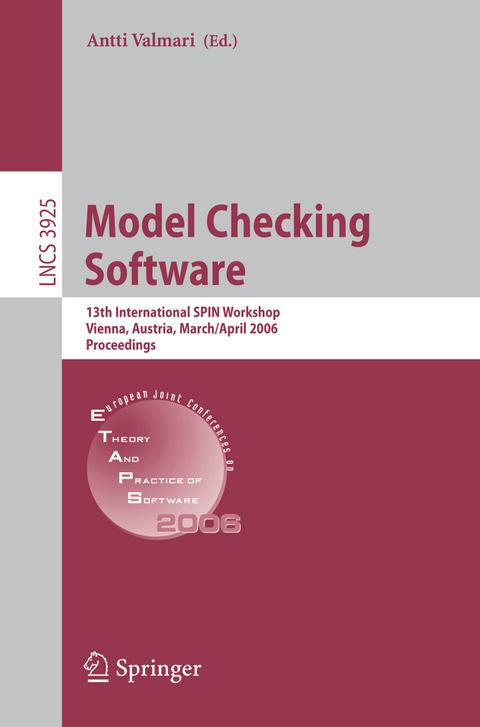
Model Checking Software
Springer Berlin (Verlag)
978-3-540-33102-5 (ISBN)
Directed Model Checking.- Large-Scale Directed Model Checking LTL.- Directed Model Checking with Distance-Preserving Abstractions.- Adapting an AI Planning Heuristic for Directed Model Checking.- Larger Automata and Less Work for LTL Model Checking.- Markovian Systems.- Don't Know in Probabilistic Systems.- Symbolic Model Checking of Stochastic Systems: Theory and Implementation.- Distributed Model Checking.- Parallel and Distributed Model Checking in Eddy.- Distributed On-the-Fly Model Checking and Test Case Generation.- Advanced Handling of Data Aspects.- Bounded Model Checking of Software Using SMT Solvers Instead of SAT Solvers.- Symbolic Execution with Abstract Subsumption Checking.- Abstract Matching for Software Model Checking.- Applications.- A Parametric State Space for the Analysis of the Infinite Class of Stop-and-Wait Protocols.- Verification of Medical Guidelines by Model Checking - A Case Study.- Assume-Guarantee.- Towards a Compositional SPIN.- Partial Order Reduction.- Exploiting Symmetry and Transactions for Partial Order Reduction of Rule Based Specifications.- Partial-Order Reduction for General State Exploring Algorithms.- Tool Demonstrations.- A Counterexample-Guided Refinement Tool for Open Procedural Programs.- jMosel: A Stand-Alone Tool and jABC Plugin for M2L(Str).- Model Checking Dynamic States in GROOVE.
| Erscheint lt. Verlag | 15.3.2006 |
|---|---|
| Reihe/Serie | Lecture Notes in Computer Science | Theoretical Computer Science and General Issues |
| Zusatzinfo | X, 308 p. |
| Verlagsort | Berlin |
| Sprache | englisch |
| Maße | 155 x 235 mm |
| Gewicht | 1010 g |
| Themenwelt | Mathematik / Informatik ► Informatik ► Software Entwicklung |
| Informatik ► Theorie / Studium ► Compilerbau | |
| Schlagworte | Abstract Interpretation • Abstraction • algorithm • algorithms • Automata • distributed model checking • Erfüllbarkeitsproblem der Aussagenlogik • explicit model checking • formal methods • formal specification • Formal Verification • Markovian systems • modal verification • Model Checking • mu calculus • program analysis • Software Verification • Spin • SPIN model checking • structured analysis • Testing • verification |
| ISBN-10 | 3-540-33102-6 / 3540331026 |
| ISBN-13 | 978-3-540-33102-5 / 9783540331025 |
| Zustand | Neuware |
| Haben Sie eine Frage zum Produkt? |
aus dem Bereich


